The name of Valery Abisalovich Gergiev has inextricably been linked with the Opera Theatre in Vladivostok from its date of foundation. On October 18, 2013, during the inaugural ceremony at the Primorsky Opera and Ballet Theatre, the audience was shown a video message from the Maestro who promised to go on tour to Vladivostok.
Six months later the city became a new point on the route map of the XIII Moscow Easter Festival.
“I was especially impressed by Vladivostok and, first of all, by the new Opera Theatre, which transforms both the city and the whole Primorsky Region,” the Maestro shared his first impressions.
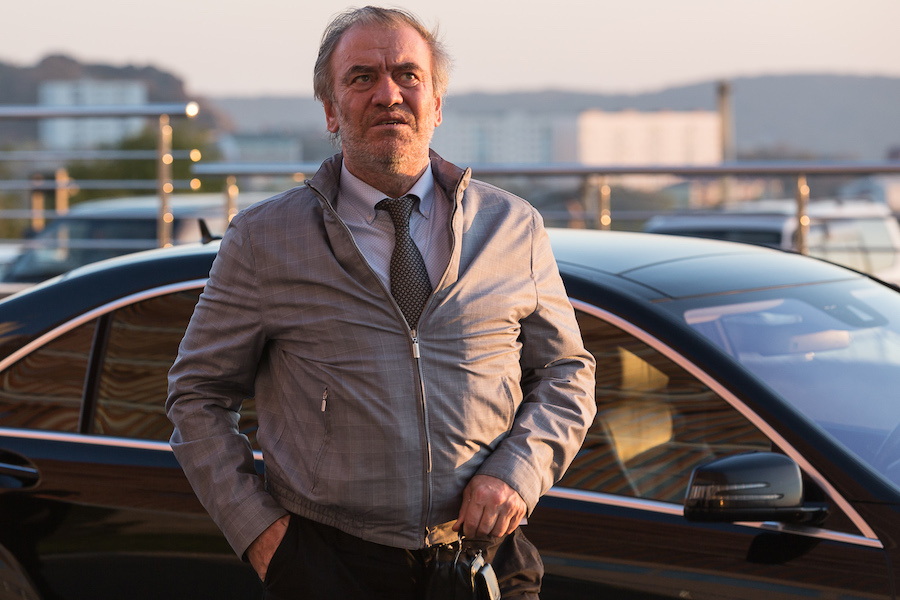
Meeting with the new Theatre
Photo by Gennady Shishkin
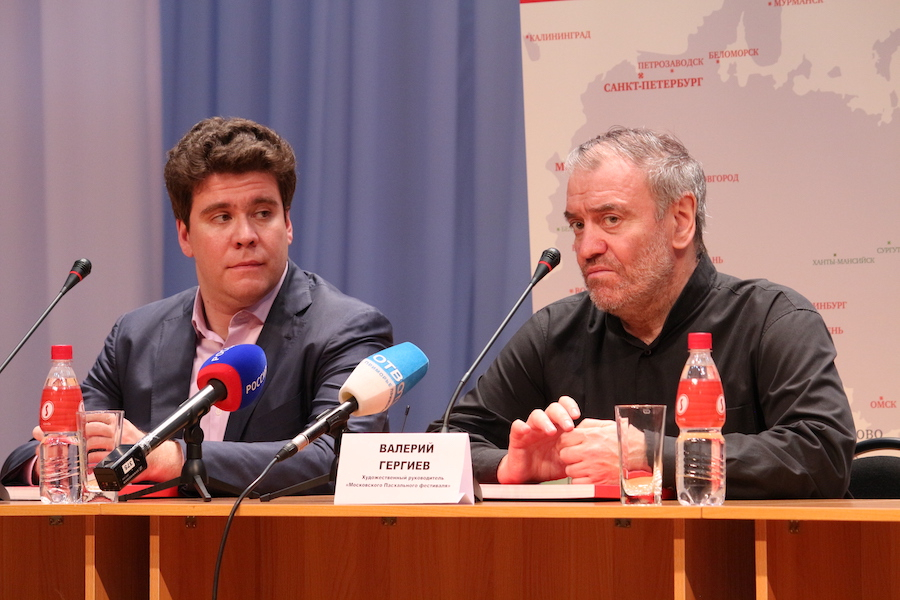
Press conference held by Denis Matsuev. April 28, 2014
Photo by Aleksey Zdanovich
Having estimated the acoustics of the Theatre hall, the musicians began to replace some compositions of their program. On April 28, 2014, Valery Gergiev conducted the Mariinsky Orchestra with Denis Matsuev as a piano soloist at two concerts.
The first concert was a charity one for personnel of the Navy Pacific Fleet, cadets and combat veterans. They enjoyed Igor Stravinsky’s Symphony in Three Movements and the music from the ballet Petrushka, and Sergei Rachmaninoff’s Piano Concerto No. 3.
At night, the second concert gathered a full house again. The audience enjoyed some fragments from the opera Lohengrin by Richard Wagner, as well as Symphony No. 3 and Prométhée by Alexander Scriabin. The latter was performed with the participation of the Grand Joint Chorus of Vladivostok. The musicians kept surprising the Vladivostok audience, and Denis Matsuev performed Dmitri Shostakovich’s Piano Concerto No. 1, extending the concert for half an hour.
“The Theatre is perfectly sited and technically powered. We have conceived some joint projects with the Primorsky Theatre and hope that we will be able to carry out them within the nearest year,” Valery Gergiev told journalists after the performance.
The next meeting took place when the Mariinsky Orchestra was on tour in Russian regions and Japanese cities. In Vladivostok, the musicians gave three concerts different from each other. On October 6, 2014, the Orchestra performed a composition from the golden fund of its repertoire – Pyotr Tchaikovsky’s tragic masterpiece, Symphony No. 6, which conquered the audience.
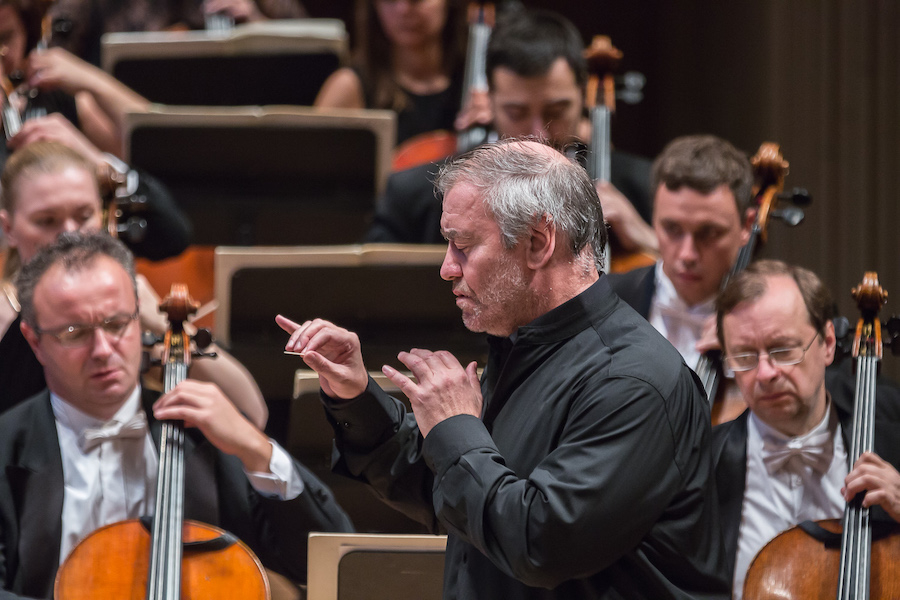
With the Mariinsky Orchestra. October 6, 2014
Photo by Gennady Shishkin
Maestro Valery Gergiev described the further program as “a travel over the history of Russian music of the 20th century.” On October 7, 2014, the musicians performed two concerts. In daytime, the charity concert was given for children and teachers of music schools; they enjoyed Sergei Prokofiev’s symphonic fairy tale Peter and the Wolf. At night, the two large orchestras consolidated for the first time – the Mariinsky and the Primorsky. Their joint concert under the baton of the Maestro culminated in performing Dmitri Shostakovich’s large-scale Symphony No. 8.
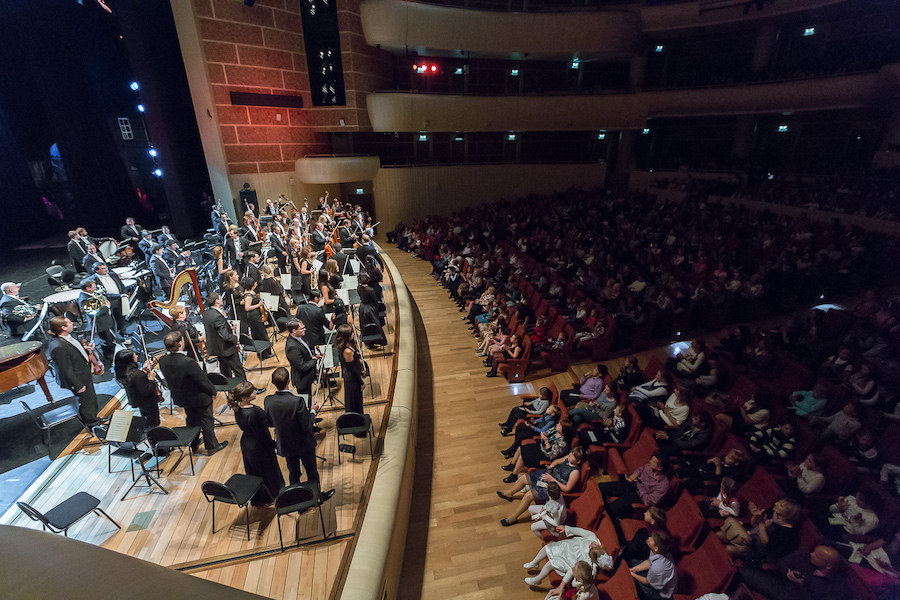
Young audiences at the charity concert conducted by the Maestro. October 7, 2014
Photo by Gennady Shishkin
The autumn in 2015 was marked by the launch of a large-scale international project. The Eastern Economic Forum was held in Vladivostok, and for several days, the city hosted important guests from the whole Asia-Pacific region. The culmination of the Forum cultural program was the appearance of Valery Gergiev with the Mariinsky Orchestra and soloists.
On September 4, 2015, at the Big Gala Concert of opera and ballet music, the Maestro first presented winners at the XV International Tchaikovsky Competition held recently: Ariunbaatar Ganbaatar, a Mongolian baritone to whom the Grand Prix had been awarded, and Yulia Matochkina, a velvet mezzo-soprano who had received the First Prize.
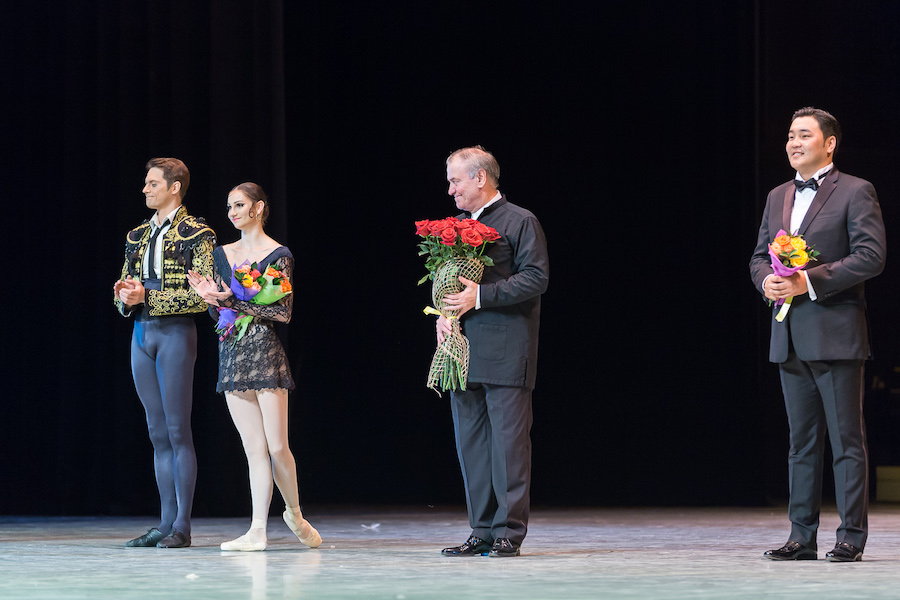
After the Gala Concert in support of the Eastern Economic Forum. Yevgeny Ivanchenko, Oxana Skorik, Valery Gergiev and Ariunbaatar Ganbaatar. September 4, 2015
Photo by Gennady Shishkin
On the following day, September 5, 2015, the musicians gave a charity concert again for students of music schools and social rehabilitation centers, veterans, disabled persons, members of local ensembles, students and teachers of children’s art schools, and cadets.
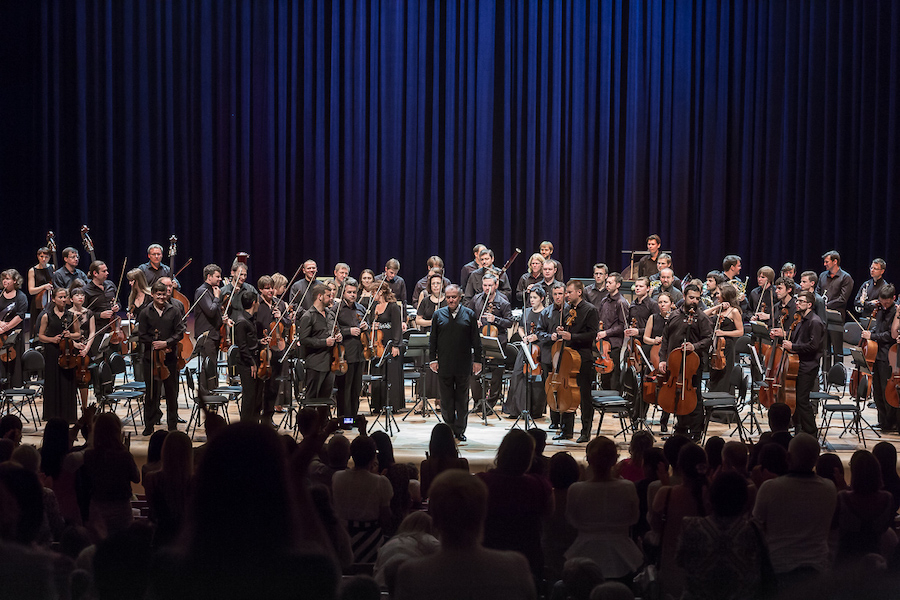
Standing ovation after the performance. September 5, 2015
Photo by Gennady Shishkin
At that time, the coming changes had filtered through to everyone. Officially, they would be announced three months later. On December 5, 2015, at a creative audience meeting, Valery Gergiev told about the new status of the Primorsky Theatre. “The 233rd season of the Mariinsky Theatre was marked by a great event; its younger brother appeared at the other end of the country. For us, to open the branch theatre in the Primorsky Region is both a great responsibility and a great honor. In Russia, it is the most important region that has its own unique features,” he said.
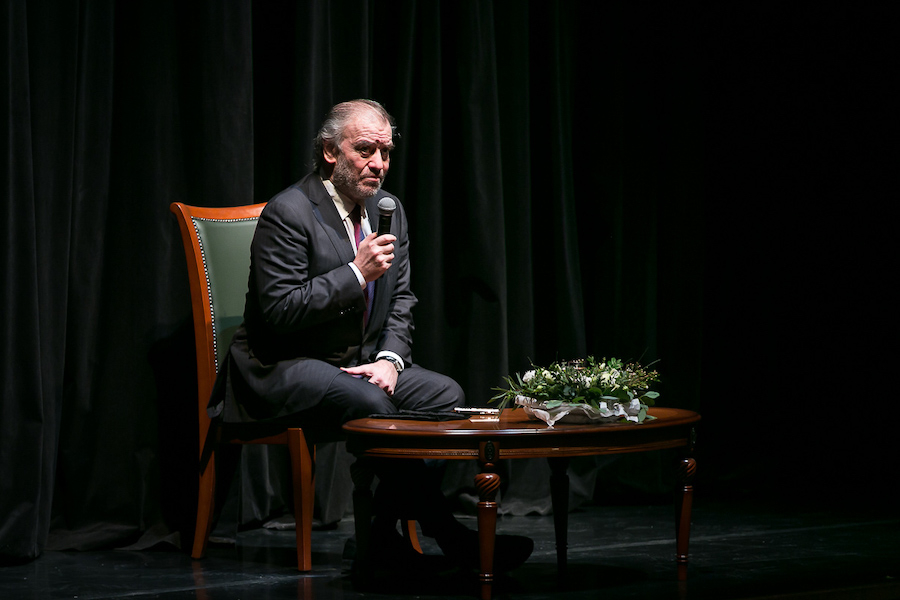
The meeting with Valery Gergiev had a full house. For a long time, people did not want to let the Maestro go. December 5, 2015
Photo by Gennady Shishkin
Later that evening a new cultural event occurred. The Mariinsky Theatre first presented a whole opera – The Queen of Spades by Pyotr Tchaikovsky, fabulously staged by Yuri Temirkanov. Left in Vladivostok, the performance was included in the repertoire of the Primorsky Stage.
The city had been preparing for more active, more diverse cultural life, full of meetings with outstanding contemporary artists.
